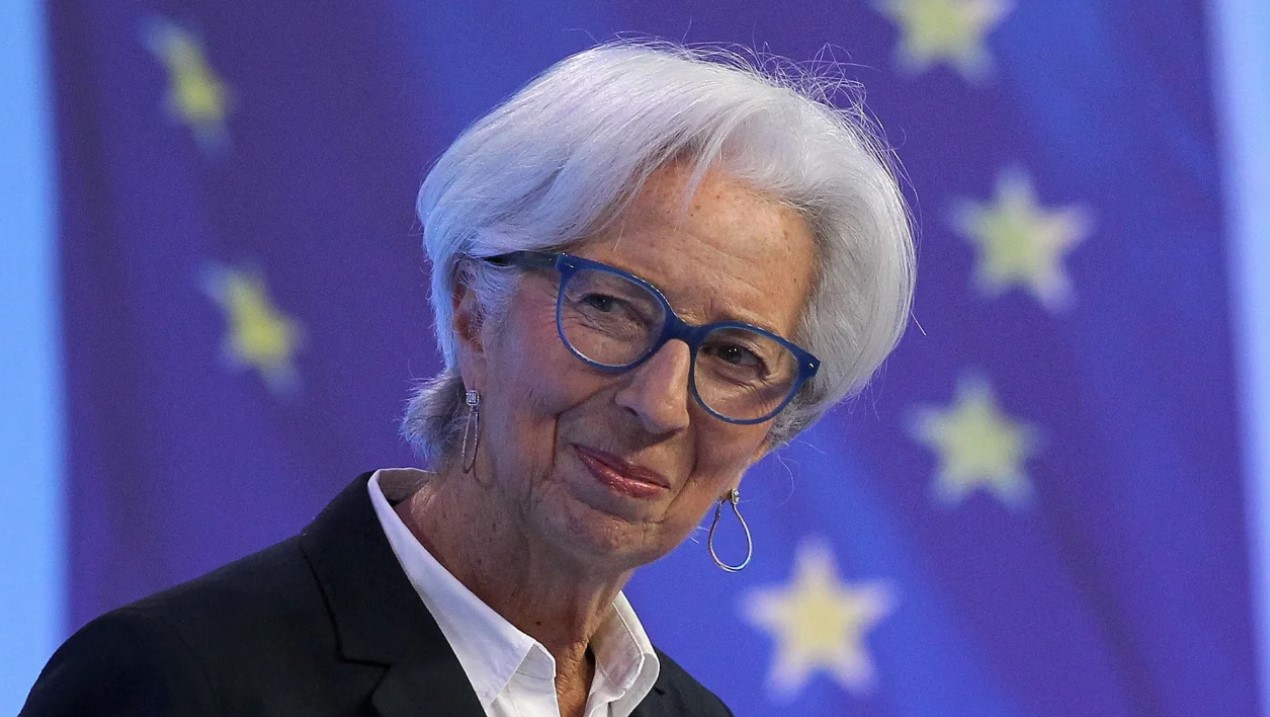The European Central Bank (ECB) has raised interest rates by a quarter percentage point to a record high, marking its 10th consecutive rate hike, despite concerns about potentially pushing the eurozone into a recession. This move brings the deposit rate to 4% from below zero in the previous year, with the ECB indicating that it might have reached a level sufficient to address inflation, but it has not ruled out the possibility of future rate hikes. Following the announcement, Eurozone bond yields decreased, and the euro depreciated by 0.6% against the dollar. ECB President Christine Lagarde noted that while some central bank governors preferred to maintain rates, a “solid majority” supported the decision to increase rates.
The decision to raise rates came amid uncertainty about how a slowdown in Eurozone growth, combined with previous rate hikes, would impact the region’s persistently high inflation rate, which stood at 5.3% in August. New ECB economic forecasts suggested a more significant slowdown in Eurozone growth for this year and the next, along with sustained inflation well above the ECB’s 2% target. Nevertheless, the ECB’s statement indicated that they believe the key interest rates have reached a level that, if maintained, could contribute to returning inflation to the target.
Looking ahead, investors are focusing on the possibility of interest rate cuts, expected to begin next year as inflation and economic growth cool down. Central banks globally are grappling with the challenge of addressing high inflation while dealing with slowing economic growth. The ECB’s rate increase comes as other major central banks, like the Federal Reserve, are considering pausing their own series of rate hikes in response to surging inflation levels. Market confidence in the ECB’s ability to achieve its objectives appears to be waning, as indicated by the five-year, five-year inflation swap standing at 2.6%, suggesting expectations of continued inflation.
(Source: Tom Fairless | Chelsey Dulaney | WSJ)









